With Zimbabwe’s army mobilized to enforce a state of emergency amid an election dominated by false news and intimidation, it’s clear the troubled African country hasn’t broken a cycle of flawed elections. Yet, as the dust settles there may be one winner: China.
Over the course of Robert Mugabe’s leadership of Zimbabwe, election violence was incrementally normalized. Although Mugabe was freely elected in 1980, the ensuing elections became progressively worse. By the 1990s, elections were marked by judicial targeting of opposition leaders and intimidating rhetoric, and during the 2002 presidential elections things took an especially nasty turn.
That election cycle was marked by “paramilitary youth groups” carrying out threatening street fighting. International observers accused the government of encouraging its supporters to participate in that intimidation, and these street fighters have become a hallmark of Zimbabwe’s elections.
For a time, it appeared that the first round of elections since Robert Mugabe left power would be peaceful, if imperfect. The problems in this election cycle have been twofold. First, nearly 4 decades in power have given the ruling party ZANU-PF a striking institutional advantage, which they have leveraged through the state media’s uneven coverage and the alleged distribution of food aid on the basis of party affiliation.
There have also been reports of the ZANU-PF using intimidation in rural areas.
“Zanu-PF officials are convening meetings in most areas and they are telling people that if they vote for the opposition the violence that was visited upon them during the 2008 general election will come again,” Jestina Mukoko of the Zimbabwe Peace Project told The Irish Times. The 2008 elections reached a fever-pitch of violence, including the establishment of torture camps to intimidate voters.
Voters have also been subjected to an extensive false news campaign from both sides of the political spectrum. Much like in India, the WhatsApp messaging service has been the primary means to distribute a barrage of doctored images and fake stories. The fake stories have targeted both sides.

Other fake stories include:
- Doctored images of the head of the Zimbabwe Electoral Commission (ZEC), the organization tasked with monitoring the election results, decked out in ruling party swag.
- A rumor that the opposition would select controversial former first lady Grace Mugabe for the office of Vice President. Grace has garnered a reputation for supporting a lavish lifestyle on the back of government graft, earned the nickname ‘Gucci Grace’ and has been in embroiled in legal trouble over allegedly assaulting a South African model.
However, despite all these flaws, it seemed that this election was at least an improvement on the former year’s street fighting.
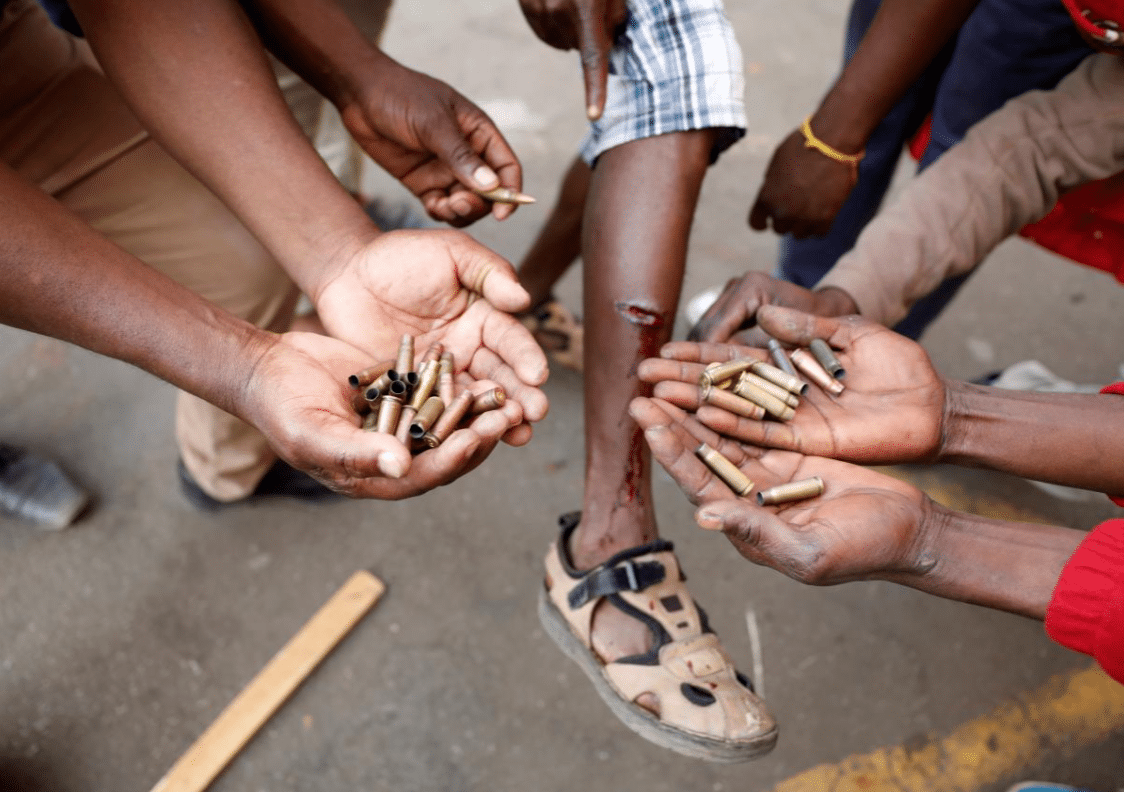
That was the case, at least until August 1st, when opposition protesters went to the ZEC building to demonstrate their displeasure with alleged vote rigging. Police moved in to disperse the crowds, and they traded tear gas and stones.
The spark of the protests was the ZEC’s announcement of preliminary election results which showed a crushing defeat for the opposition. According to the ZEC the ZANU-PF, Mugabe’s old party which has ruled the country since 1980, came out of the election with 145 of the 210 seats; enough to change the country’s constitution at will.
As this day that ended in tragedy comes to a close, I implore all political and community leaders to utter these words loudly and clearly to all those who follow them – “Seek Peace and Pursue it!”
— President of Zimbabwe (@edmnangagwa) August 1, 2018
By the end of the day on Wednesday, Zimbabwe’s President Emmerson Mnangagwa called in the Army to disperse the opposition protests in the capital, six people were shot dead, and the police raided the opposition HQ on a warrant for “possession of dangerous weapons” and inciting “public violence”.
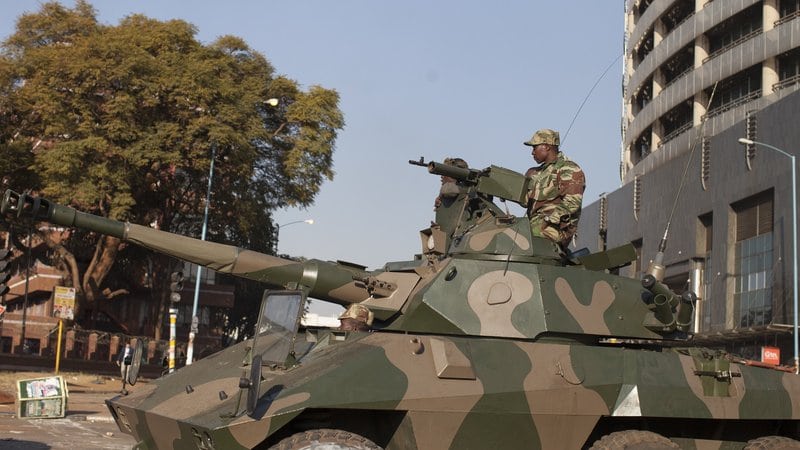
International observers of the events have begun to speak to the press with regards to the quality of the elections. European Union observers criticized long wait times at polling stations, alleged bribery, and the use of state resources to get their supporters to the polls.
China’s observers struck a more positive tone.
“For Zimbabwe, this is an important moment and I hope that this election could be a new start for peace, development and prosperity,” the Head of the Chinese observer group Zimbabwe Liu Guijin said after the preliminary results were announced. He went on to estimate his country’s response to the elections.
“Definitely we could expect more investments from China, more entrepreneurs both public and private coming to invest because for any foreign investor a peaceful environment, a consistent policy and a stable government are so very important.”
Chinese investment was an issue during the election campaign, with the opposition leader going as far as to promise to expel the Chinese.
“I have seen the deals that Ngwena has entered into with China and others, they are busy asset-stripping the resources of the country,” opposition presidential candidate Nelson Chamisa said at a rally.”I have said beginning September when I assume office I will call the Chinese and tell them the deals they signed are unacceptable and they should return to their country.”
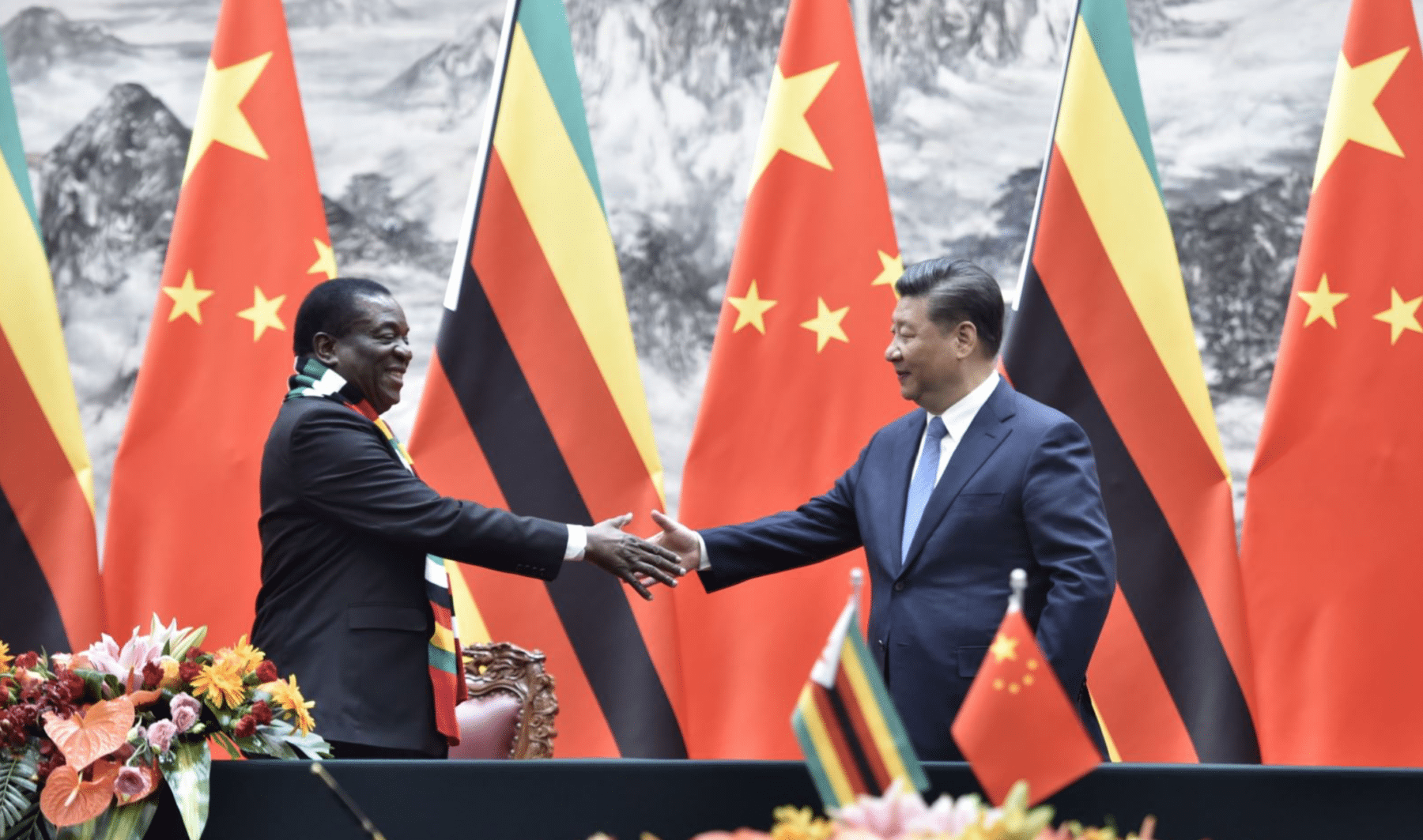
By contrast, the current president, and the likely victor of this election, has deep ties with China.
During the 1960s Mnangagwa was a member of a group of revolutionaries hand picked by then-guerilla Robert Mugabe to go to China and receive years of military training. He and the rest of the group sent to China formed the ‘crocodile gang’, a revolutionary paramilitary unit which fought against white rule in Zimbabwe.
Since replacing his former commander in a military coup last year, Mnangagwa has eagerly sought Chinese investment and loans, and increased military ties by accepting Chinese military trainers in his country. Mnangagwa is reportedly a Sinophile in his personal life and sent one of his sons to China for 5 years of education.
The acceptance of Chinese advisors is a breach with Mnangagwa’s predecessor, Mugabe. Mugabe was eager to accept Chinese assistance when fighting white rule, but after taking power he was resistant to the idea of accepting Chinese training.
After a state visit in 1980, which he described as a “lot of bull,” he complained that China was offering to help “by supplying a few tractors and many technicians” and that he was “personally … not at all impressed with the idea of the technicians” because he suspected they had a political agenda, describing the technicians as a bunch of “Marxists who will start a process of undermining” his revolutionary movement.
[Title Image: Zimbabwean soldiers firing live ammunition at protestors on Wednesday. (AFP Photo)]
LIMA CHARLIE NEWS, with Diego Lynch
Lima Charlie provides global news, insight & analysis by military veterans and service members Worldwide.
For up-to-date news, please follow us on twitter at @LimaCharlieNews
In case you missed it:

![[Silver lining for China in Zimbabwe’s violent elections][Lima Charlie News]](https://limacharlienews.com/wp-content/uploads/2018/08/Screen-Shot-2018-08-02-at-12.51.35-PM.png)
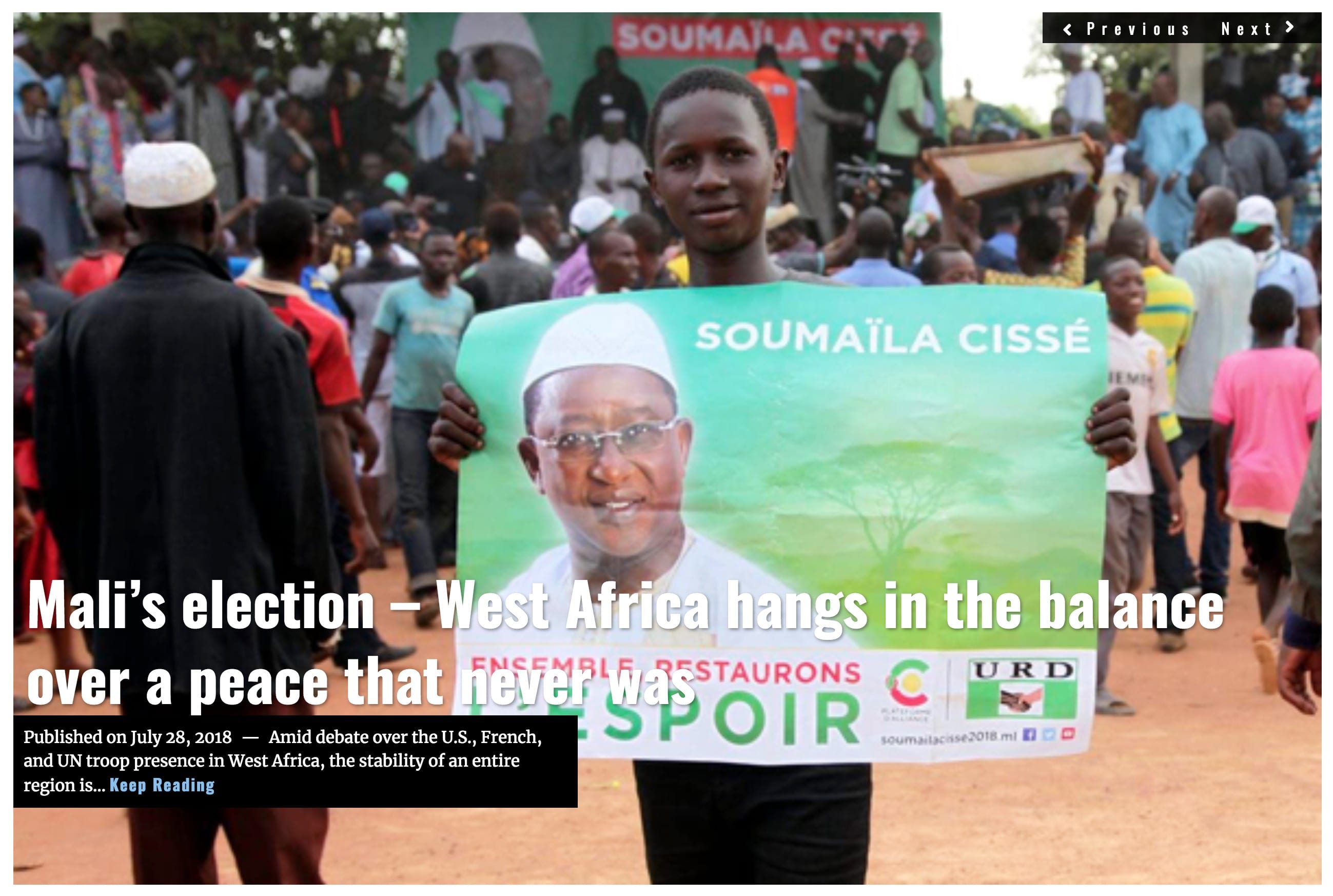
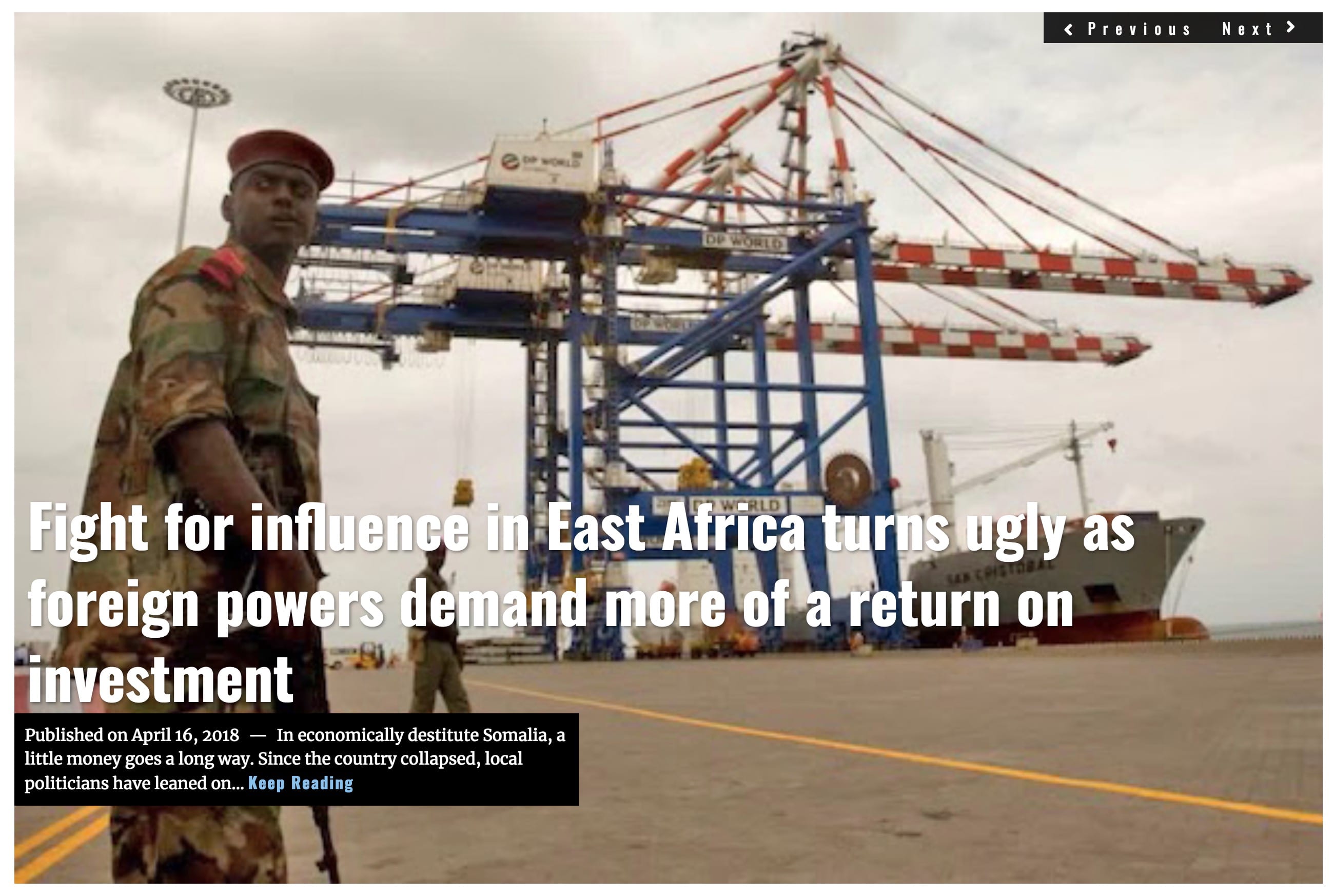
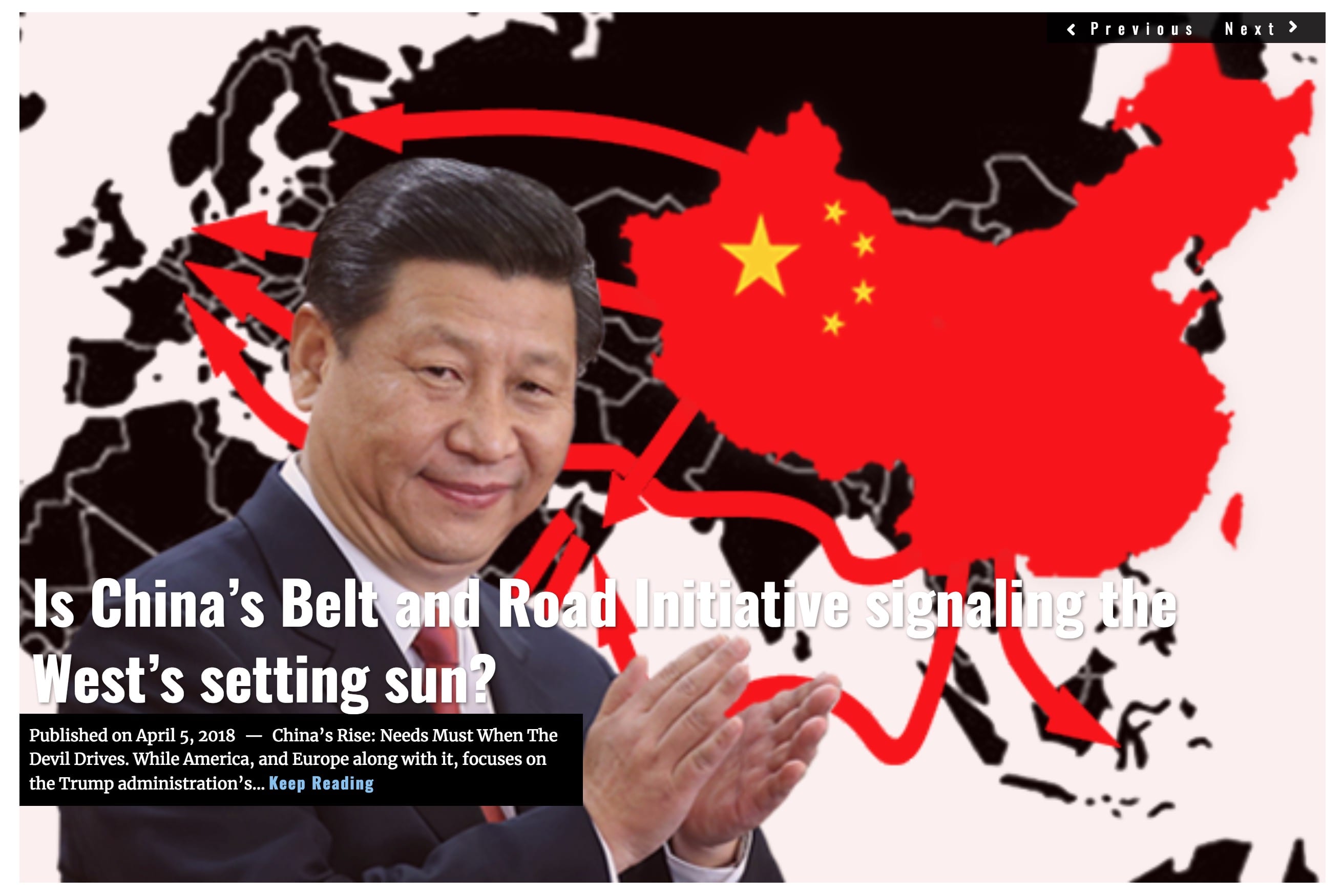

![image Resistance mounts against China's President Xi Jinping [Lima Charlie News][Photo: Johannes Eisele / AFP]](https://limacharlienews.com/wp-content/uploads/2018/08/Resistance-mounts-against-Chinas-President-Xi-Jinping-480x384.jpg)
![Image Little choice for Russia and China but to link up [Lima Charlie News]](https://limacharlienews.com/wp-content/uploads/2018/09/headlineImage.adapt_.1460.high_.russia_china_opinion_052114.1400674740238-480x384.jpg)
![Africa’s Elections | In Malawi, food, land, corruption dominate [Lima Charlie News]](https://limacharlienews.com/wp-content/uploads/2019/06/Malawi-election-Food-land-corruption-480x384.jpg)
![Image The Rwandan Jewel - Peacekeepers, Conflict Minerals and Lots of Foreign Aid [Lima Charlie World]](https://limacharlienews.com/wp-content/uploads/2019/03/Rwanda-Jewel-480x384.jpg)
![Image [Women's Day Warriors - Africa's queens, rebels and freedom fighters][Lima Charlie News]](https://limacharlienews.com/wp-content/uploads/2019/03/Womens-Day-Warriors-Lima-Charlie-News-480x384.jpg)
![Image Zimbabwe’s Election - Is there a path ahead? [Lima Charlie News]](https://limacharlienews.com/wp-content/uploads/2018/09/Zimbabwe’s-Election-Is-there-a-path-ahead-Lima-Charlie-News-480x384.png)
![Image Mali's election - West Africa hangs in the balance over a peace that never was [Lima Charlie News][Photo: Baba Ahmed / AP]](https://limacharlienews.com/wp-content/uploads/2018/07/Malis-election-West-Africa-hangs-in-the-balance-over-a-peace-that-never-was-480x384.png)

![image Resistance mounts against China's President Xi Jinping [Lima Charlie News][Photo: Johannes Eisele / AFP]](https://limacharlienews.com/wp-content/uploads/2018/08/Resistance-mounts-against-Chinas-President-Xi-Jinping-150x100.jpg)